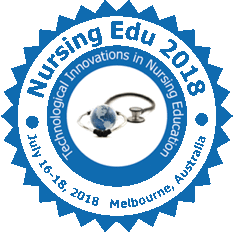
Kwan Sharis
Caritas Institute of higher Education, Hong Kong
Title: Explore the effectiveness of experiential pedagogy for nursing students in preclinical stage: Pilot study
Biography
Biography: Kwan Sharis
Abstract
Objective:
Based on the theoretical framework of Kolb’s experiential learning theory. Experiential pedagogy emphasize on challenge, reflection, overcoming adversity and team work building. It offers participants’ opportunities to experience more challenging activities that help them to recognize their own weaknesses and strengths. It allows individuals to extract meaning from their experiences and to apply this new knowledge to other situations so as to promote insights that help them to transfer new information back into their everyday environment. The purpose of the study was to explore nursing students’ attitude, beliefs and behaviors following an experiential education and determine if there was a change in self-efficacy, resilience and competency towards the clinical practicum.
Methodology:
In pilot study, 20 of year 2 nursing students from Caritas Institute of Higher Education were recruited by convenience sampling. 10 of them recruited in experiment group and 10 of them recruited in control group using randomized controlled trial design. All were blinded to the group allocation and they have no clinical experience by the time joining the study. Both of pre and post- tests questionnaires were conducted in two groups in 0 month (after intervention), 3 months (right after clinical practicum) and 6 months (right 3 months after clinical practicum). Quantitative data were collected using General self- efficacy scale, Making Sense of Adversity Scale and Scale of Nursing Students Competence Instrument. Posttest scores were compared between two groups. Significant difference in attitudes changing toward experiential activities.
Conclusion:
Positive social change include improved attitudes toward patients’ care and adoption of innovative practice. Providing students with reflective practice training from facing challenges result in improving their clinical work may be a productive investment in personal development and quality improvement.

